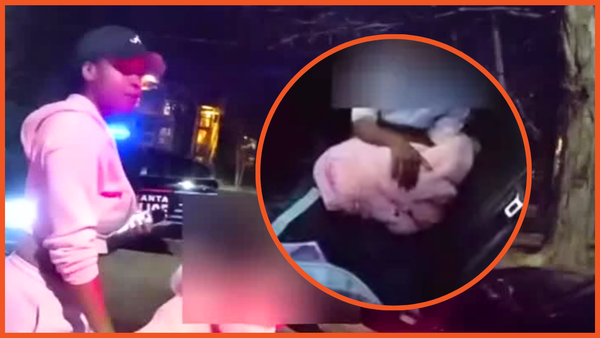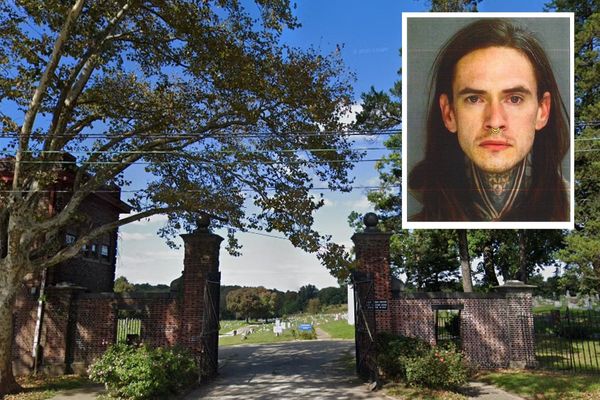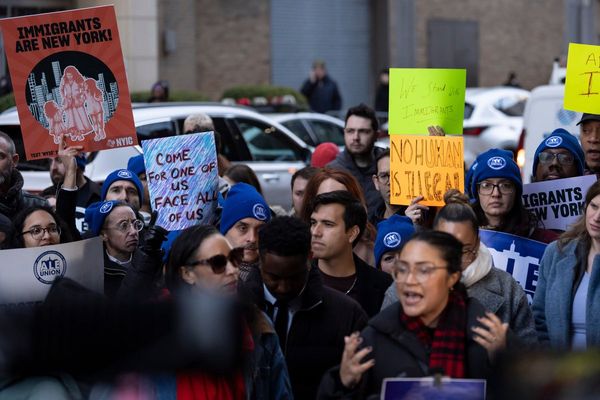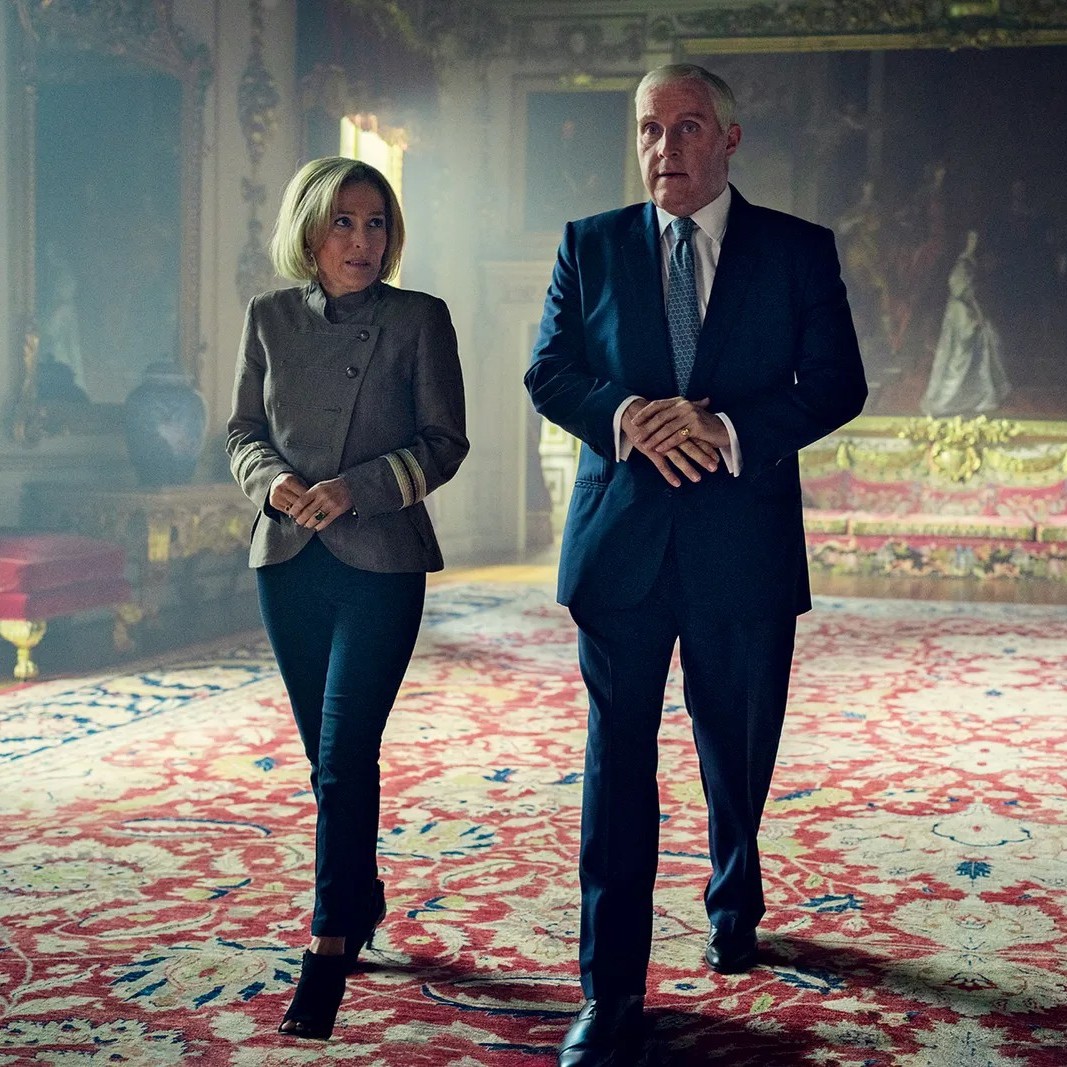
On Monday, November 11, 2019, Sam McAlister—then a junior producer and booker at BBC's Newsnight—was waiting to meet with Prince Andrew and his team at Buckingham Palace after more than a year of negotiations.
Prepared though she was, McAlister was not expecting Princess Beatrice, Andrew’s eldest daughter, then 31, to walk in the room.
“It’s very hard to imagine what it’s like going to Buckingham Palace to speak to a prince about his association with a renowned sexual predator...without the knowledge that his young daughter is going to be there,” McAlister tells Marie Claire. “Then she arrives, and you have 30 seconds to get your head around that.”
The moment is brought to life in a pivotal scene in Netflix's Scoop, which stars Billie Piper as McAlister and details the run-up to an interview that brought down Prince Andrew's career, reputation, and life as he knew it. Sitting in Buckingham Palace with the prince, his team, and his daughter, McAlister knew that Beatrice held the keys to the proverbial castle. "In my view, she was the rainmaker,” McAlister says.
In other words: Without Beatrice's approval, there would be no interview.
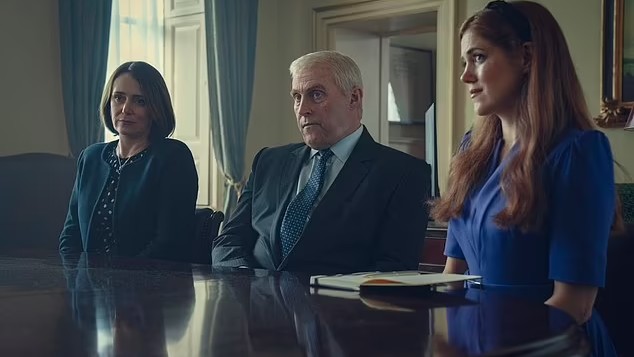
A question asked over and over in the years since: Why? Why did Andrew ultimately choose to sit down for the interview, a car-crash piece of television that made international headlines and cost him his royal career, privileges, and reputation, when he could have remained silent? Well, it kind of boiled down to Beatrice, actually.
Two months earlier, in September of 2019, Beatrice, Andrew's eldest daughter, had announced her engagement to Edoardo Mapelli Mozzi. McAlister says now that two things mattered to Andrew when he said yes to the intervew heard 'round the world: Walking Beatrice down the aisle at her wedding; and celebrating his upcoming 60th birthday. Unless Andrew "really worked at changing the view of him during that period,” McAlister says, both events would carry the stain of his association with sex offender Jeffrey Epstein.
"That was always in my mind," McAlister reflects.
In the end, Beatrice green-lit the interview, as did, shockingly, Andrew's mother Queen Elizabeth. Three days later, Andrew sat down for the Newsnight interview that would change his life—and the monarchy—forever.
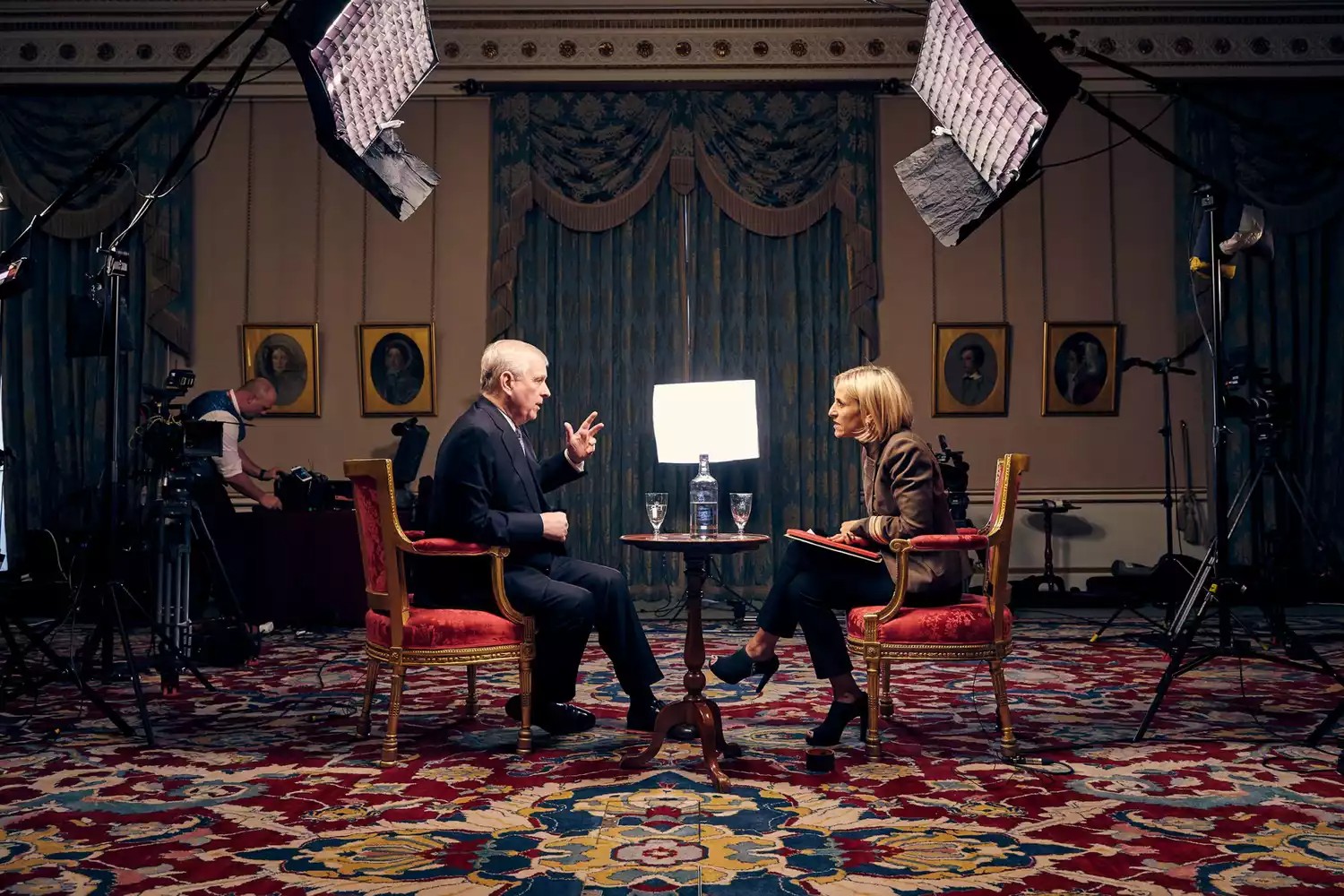
McAlister’s impossible-to-get booking of Andrew on the show is detailed in the quick but thorough 93-minute film Scoop, which landed on Netflix on April 5. Though many may watch for the recreation of the notorious interview, the movie isn't about Andrew. It's about McAlister, a single mom, a former lawyer, perpetually clad in a black wardrobe, a relentless and resilient producer who doesn’t balk at the word “no”. A woman whose dogged determination landed the BBC the “scoop of the decade” from an institution known for never complaining and never explaining.
"You have to keep believing in yourself and what you’re doing," she says now. "I felt that the journalism we did mattered, and so I kept that in my heart through relentless rejection, and I kept trying over and over again.”
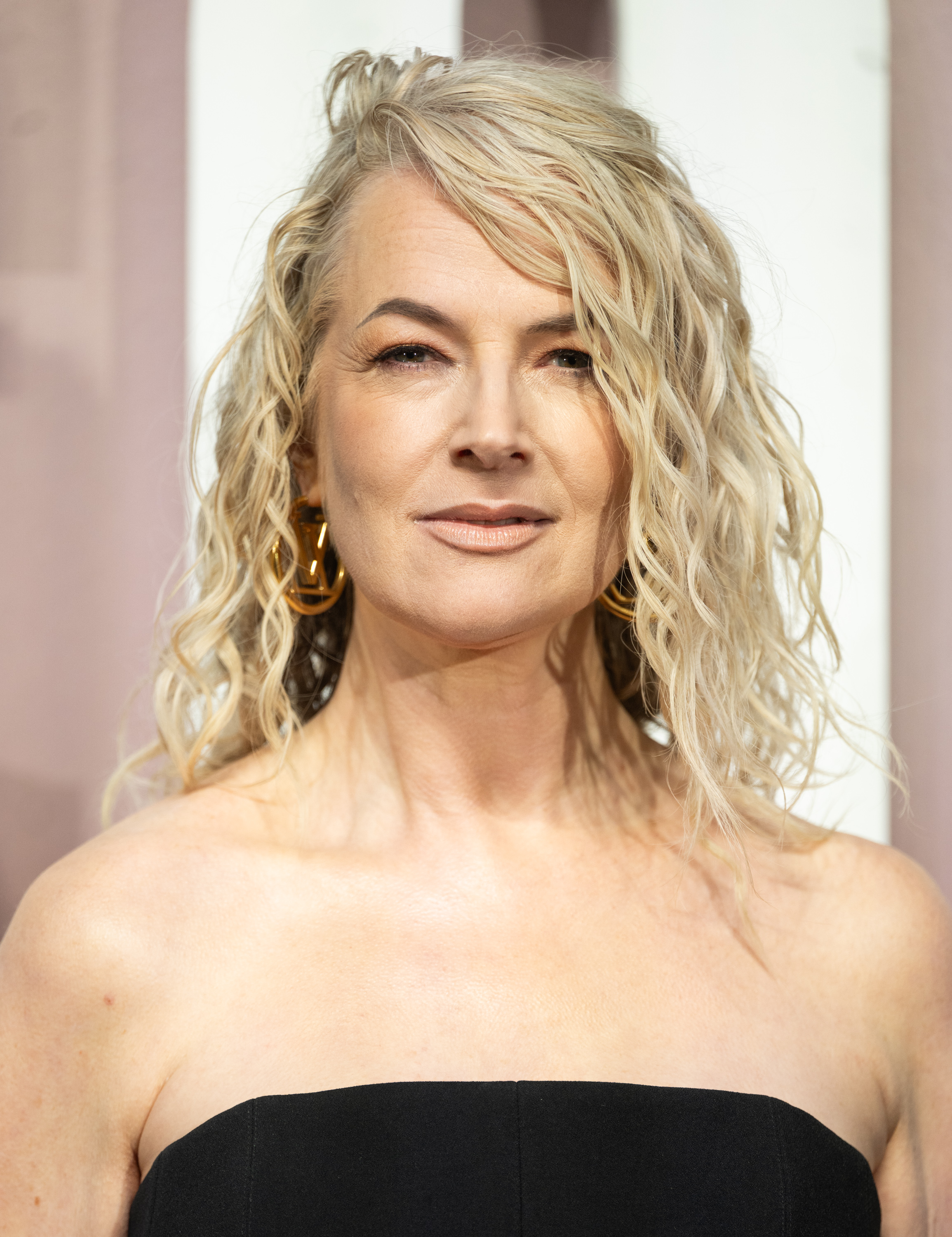
Based on McAlister’s 2022 book Scoops: Behind the Scenes of the BBC’s Most Shocking Interviews, the film places three women front and center: McAlister, the interview's producer and booker; Emily Maitlis, the presenter; and Esme Wren, the editor. “This is a story of women,” reiterates McAlister.
Andrew, played by Rufus Sewell in the movie, “is the one with the seventh most lines,” McAlister notes. “Five percent is that iconic moment with Prince Andrew in the interview." The rest, she notes, hones in on "the women on the Newsnight team and the other members of the team working tirelessly on their journalism."
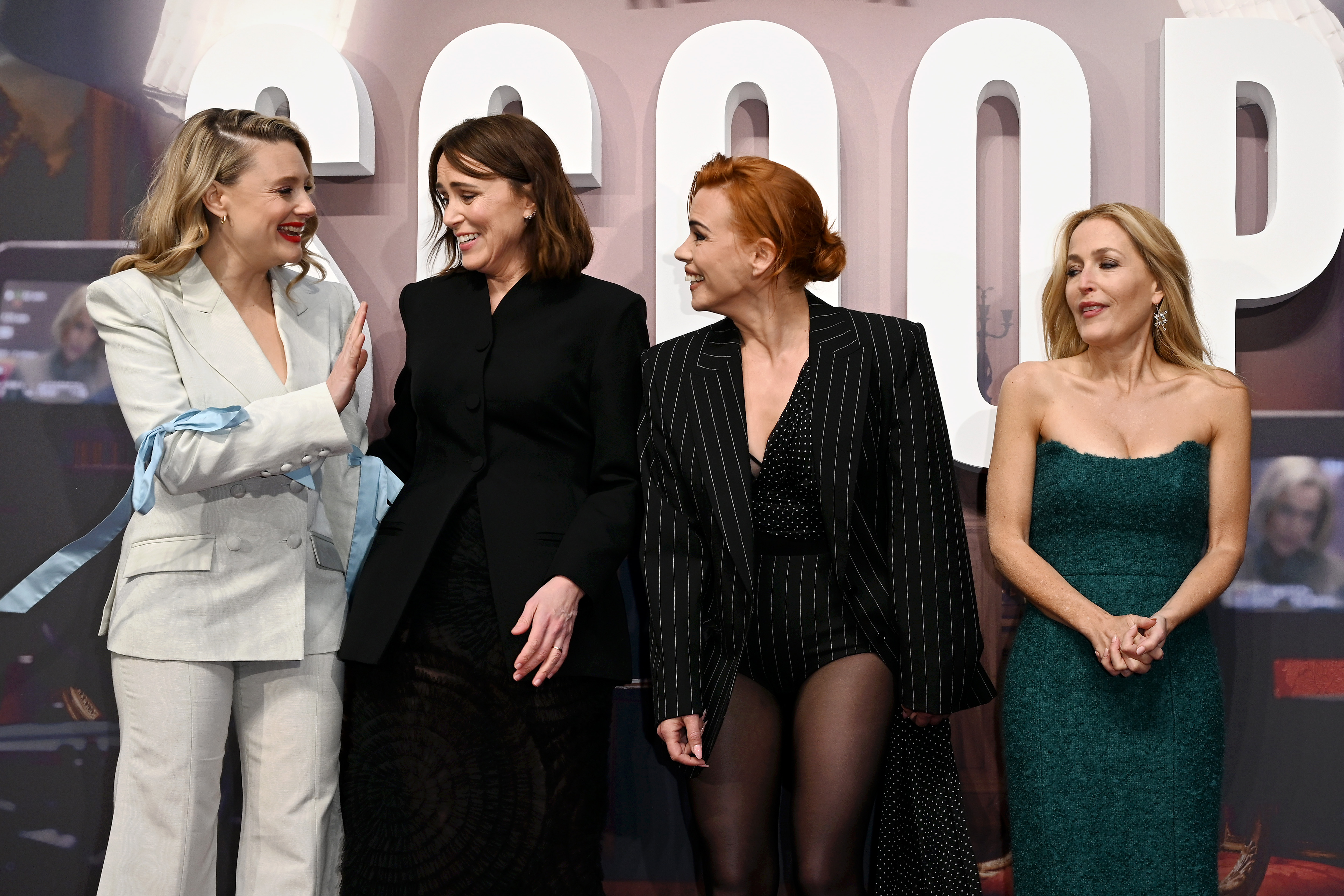
In other words, the woman who got behind Palace walls—literally—to demand answers of the Duke of York. What they pulled off was unprecedented: Members of the royal family do not sit for interviews, especially not after Princess Diana's own BBC interview (hers with Martin Bashir of Panorama in 1995). Diana's interview, after all, was a cultural moment so damning that it led Her late Majesty to push forward a history-making divorce between the then Prince and Princess of Wales.
Even after three separate meetings at Buckingham Palace, "I never thought [Andrew] was going to say yes," McAlister says.
On the day of the interview, McAlister arrived early, as she always does. She was there as the cameras were set up: the sound, the lighting, all of the paraphernalia that comes with a television interview. Maitlis—played by Gillian Anderson in Scoop—didn’t arrive, as is customary, until just before the interview. That morning, the Newsnight team had received a message from the BBC’s director general: how incredible this was (an interview in Buckingham Palace with a senior royal!), and how, in no uncertain terms, they had better not mess it up.
“The pressure was palpable,” McAlister says.
The interview itself lasted less than an hour. It has been described as a national joke (CNN), a car crash (The Washington Post), and the worst debacle for the royal family since Diana's death in 1997 (The New York Times). Andrew feebly denied ever meeting Virginia Guiffre, the woman who had accused him of sexual assault, despite Maitlis showing him a photo of them together. (Andrew settled out of court with Guiffre for £12 million in early 2022.) He showed no empathy for Epstein's victims and described Epstein's behavior as "a manner unbecoming." In a now-famous response, Maitlis hit back: "Unbecoming? He was a sex offender."
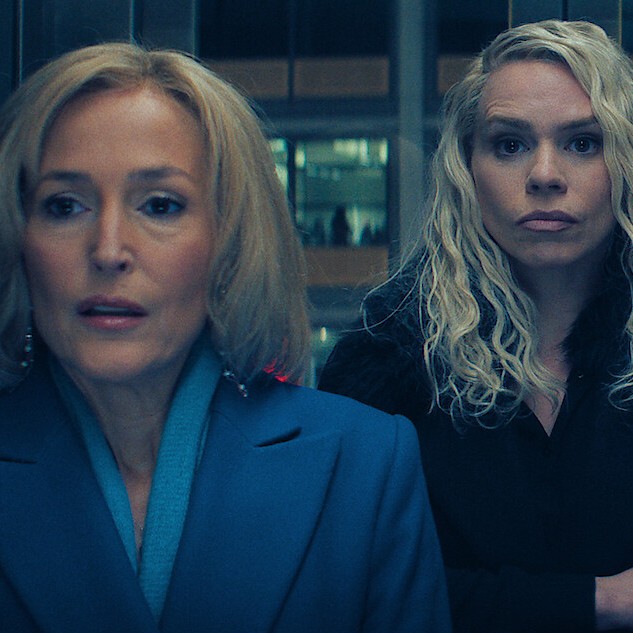
"I knew what we had," McAlister says of the moments after the interview. “I knew how profoundly important it was. I knew how disastrous it was for him."
And yet: "Palpably, [Andrew] thought it had gone well," she recalls. "The difference in the room between the journalists—and remember, I’m an ex-lawyer, so I know how this is for him potentially legally—the difference between Emily, who looks like we’ve shot her dog, and Prince Andrew, who looks like he’s done a good job, really did encapsulate the space between his capability and his perception of his capability.”
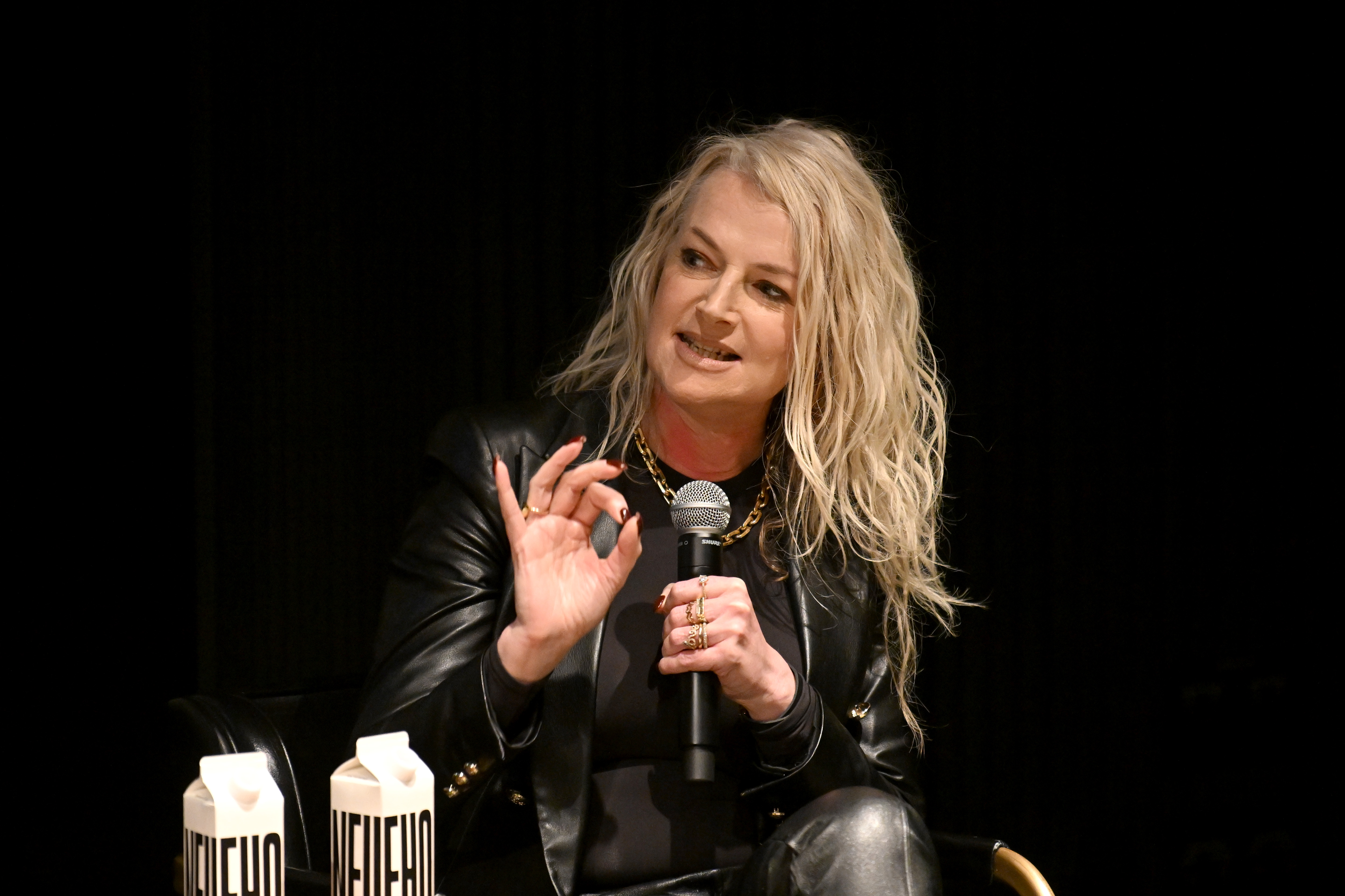
Four days after the interview aired, Andrew resigned from his royal duties. The late Queen ultimately stripped her reported favorite son of all of his royal patronages, privileges, and military titles.
Inexplicably, even after landing one of the biggest scoops in the BBC's almost century-long history, McAlister was neither promoted nor given a pay raise. “I’m not a bitter ex-girlfriend,” McAlister says now. “I never want to say anything negative about the BBC, but that didn’t happen." She confirmed that she'd asked for a pay rise and a promotion, but was told that, "unfortunately, there wasn’t capacity to give me either.”
But McAlister wanted to write a book about the scoop of the decade—and, she says, "I wasn’t going to be able to write the book while still at the BBC." So, she bet on herself. “I threw the dice, and throwing the dice as a single parent on a part-time salary is a really big dice to throw,” McAlister said. "It could’ve ended differently, and, of course, it ended joyously. I’m the luckiest woman alive.”
As a pivotal moment in her life plays out onscreen, the power of female collaboration has translated from onscreen to offscreen for McAlister. Nobody prepares you for meeting the woman who will play you in a movie, but McAlister and actress Billie Piper have become friends, bonding over gin martinis (McAlister, a longtime aficionado, introduced Piper to her favorite drink).
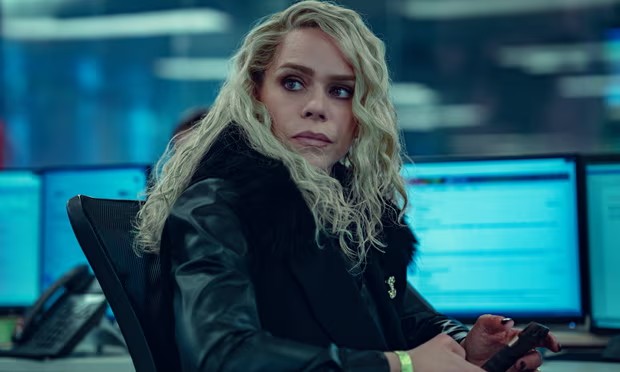
Both women consider Scoop to be a feminist project, in part because—with the exception of Sewell—the biggest roles are all played by women. (In addition to Piper as McAlister and Anderson as Maitlis, Romola Garai plays Esme Wren; Keeley Hawes portrays Amanda Thirsk, Andrew's private secretary.) The film not only magnifies what can happen when women work together, McAlister says, but emphasizes the importance of "making sure that you hold powerful people to account."
For both McAlister and Andrew, the interview forever changed their lives. If their paths crossed a second time—say, on a street, or in a restaurant—what would she say to Andrew? “I would say hello,” she says, in her typically buoyant way. “I’m not awkward with people. We gave him an opportunity, and it was his responsibility to give good answers, and he didn’t. So I would smile at him and wish him a good day."
She adds, "I can’t speak for what he would say to me.”
